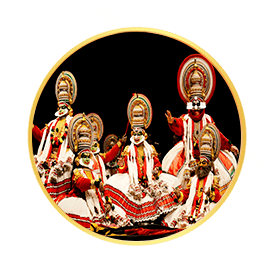Malayalam, a classical language of India, is widely spoken in Kerala and among Malayali communities around the world. Known for its phonetic richness and poetic structure, it has shaped a distinctive musical identity across generations. From temple rituals to contemporary cinema, Malayalam music reflects deep cultural roots and a wide range of expressions. Classical traditions like Sopana Sangeetham, folk forms such as Oppana and Mappilappattu, and the devotional songs performed in churches and temples have all played an essential role in forming its soundscape. Malayalam cinema, which began to flourish in the mid-20th century, brought with it a golden era of film music led by legendary singers like K. J. Yesudas, S. Janaki, M. G. Sreekumar, and Chitra. These famous playback singers of Malayalam cinema have not only shaped the sound of the industry but also created a catalogue of songs that remains relevant and deeply cherished. Their timeless songs still hold relevance and emotional value. Music directors like G. Devarajan, M. S. Baburaj, Raveendran, and Johnson composed works that are still performed in musical gatherings, competitions, and stage shows. In modern times, composers like Shaan Rahman, Gopi Sundar, and Bijibal have added freshness to the sound while respecting tradition. As live orchestras became less practical for small events and home functions, karaoke for Malayalam songs began to grow in popularity. From stage performances at Onam events to singing practice at home, karaoke tracks have become an effective way to connect with music without requiring a full setup. It is now common at family functions, school competitions, digital stage shows, and diaspora events, helping individuals perform songs with confidence. Our Malayalam Karaoke Collection includes a wide selection of songs across genres and decades. We feature evergreen hits like Aaradhike Karaoke, Chandrachooda Karaoke, Enthuparanjalum Karaoke, Guruvayoorambala Nadayil Karaoke, and Kathodu Kathoram Karaoke. These songs are carefully arranged as instrumental tracks that retain the original flow, making them ideal for both solo and group performances. The collection also includes soft romantic songs, classical ragas, light music, and rhythm-driven folk tunes.. From the 1960s to the early 2000s, composers like G. Devarajan, M. S. Baburaj, and Johnson produced timeless Malayalam melodies. Songs such as Pramadavanam Veendum and Harimuraleeravam have earned lasting recognition and are widely seen as the most famous songs in Kerala, frequently performed in cultural events, school programs, and classical recitals. In recent years, the Malayalam industry has embraced fresh sounds and younger voices, resulting in songs like Darshana and Pavizha Mazha, are being featured in trending playlists and social media clips. These are often counted among the most trending Malayalam songs, loved for their contemporary appeal and high production value. We offer karaoke tracks by singers like K. J. Yesudas, P. Jayachandran, M. G. Sreekumar, Unni Menon, Chitra, Sujatha Mohan, and others who have left a deep mark on Malayalam playback history. Their voices are associated with the emotional depth and lyrical quality that define the music of Kerala. Modern artists such as KS Harisankar, Sithara Krishnakumar, Vineeth Sreenivasan, Nithya Mammen, Kapil Kapilan, Niranj Suresh, and Anne Amie have introduced fresh vocal styles and contemporary expression, which are also available in karaoke format. These newer voices are widely loved across film and independent music scenes, bringing a renewed energy to Malayalam music that appeals to today's generation of listeners and performers. Religious and devotional songs are another important part of Malayalam music. Our collection includes Christian devotional songs, Hindu bhajans, and Mappilappattu songs used in various cultural and spiritual settings. These tracks are useful in church choirs, temple programs, and cultural events, and are arranged to match the traditional melody without live instrumentation. Karaoke also supports learning environments. Schools and cultural teachers use karaoke tracks to teach pronunciation, rhythm, and confidence to young singers. For the diaspora community, Malayalam Karaoke helps maintain language fluency and cultural connection. Online events often use these tracks for singing contests and team-based musical games. The karaoke version of these classics provides a fresh way for performers to explore them. Our Malayalam Karaoke Songs with Lyrics are professionally arranged to follow the original structure, melody, and tempo, with synchronized lyrics that help singers navigate each line with precision. All our tracks are available in MP3 and video formats. We regularly update the collection based on trending songs and public requests. From solo practice to public events, our Malayalam Karaoke Tracks are designed to deliver performance-ready quality in all environments. Many singers today prefer to work with structured collections of karaoke tracks that bring together some of the most loved Malayalam songs from the past. Our Evergreen Karaoke Bundle for Malayalam songs is a valuable collection that brings together beloved hits from past decades in clear, easy-to-sing formats that retain the essence of the original songs. We also offer custom support, including pitch adjustment, song trimming, and track customization, to ensure that your specific singing needs are met. Malayalam music continues to evolve through cinema, devotional traditions, and independent music. Karaoke allows singers to engage with this heritage in a meaningful way. With compositions spanning decades and genres, our instrumental collection supports the cultural journey of every Malayalam speaker and music lover. Check out the tracks below to explore and perform your favorite Malayalam songs.
















